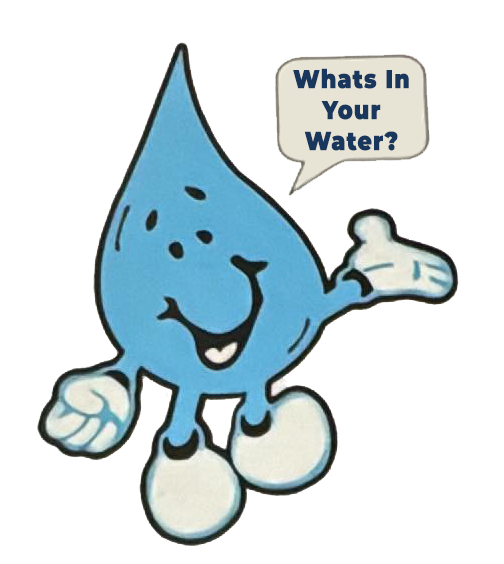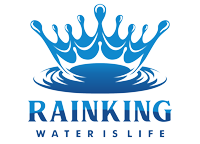It’s something we take for granted: turning on the tap and having clean, drinkable water flow out. But have you ever stopped to think about the effects hard water – the water most commonly found in our homes – has on our plumbing and appliances? In the long run, not considering the impact of hard water can give you a nasty shock when it comes to your wallet. In this blog post, we’ll cover the damaging effects hard water can have on our plumbing systems and appliances, and how a water softener can help you save money, time, and effort by protecting your home from its devastating effects. Hard water is considered anything with a high mineral content, particularly calcium and magnesium. These minerals are picked up from the soil after the water has traveled through and are considered harmless for drinking. However, scale build-up from these minerals is known to clog pipes and affect the performance of appliances such as washing machines, dishwashers, and water heaters, leading to premature or costly repairs. Not to mention the efficiency of the appliance is compromised with hard water, leading to higher energy bills. But all is not lost! Keep reading to find out how a water softener could be the saving grace for your home’s plumbing system and appliances.
Understanding Hard Water
Hard water is a common problem in many households, particularly in areas with a high mineral content in the soil. As the water travels through the soil, it picks up these minerals, leading to a high calcium and magnesium content in the water. These minerals are harmless to drink but can cause significant damage to appliances and plumbing systems, leading to costly repairs. The two main indicators of hard water are scale build-up and a reaction to the soap. Scale build-up is visible on the surfaces of appliances such as water heaters, dishwashers, and washing machines. As the minerals accumulate over time, it can lead to appliance failure or decreased efficiency. It can also be found in the form of a white, chalky residue in the sink or around the taps. To test for hard water, you can perform a simple soap test. Simply add a few drops of liquid soap to a cup of water, and if the water becomes cloudy, frothy or doesn’t lather, this is a good indicator of hard water.
The Effects of Hard Water on Appliances
The effects of hard water on appliances can range from a decrease in appliance performance to complete appliance failure. The most common type of appliance affected by hard water is the washing machine. As the minerals accumulate in the machine, it can lead to a build-up of soap scum, decreased water flow, and even machine failure. Many people are unaware of the impact of hard water on a washing machine and don’t realize the time, money, and effort needed to repair it. Other appliances affected by hard water include the dishwasher, water heater, and coffee maker. Scale build-up on the heating element in the water heater can lead to decreased performance and inefficient heating, while hard water can decrease the efficiency of the dishwasher, leading to a build-up of soap scum and dirt. Hard water can also cause deposits to form in the coffee maker, leading to a decrease in the taste and quality of the coffee.
Impact of Hard Water on Plumbing Systems
The impact of hard water on plumbing systems is often the most visible. As the minerals accumulate in the pipes, the water pressure decreases and the pipes become clogged, leading to decreased water flow. This can cause low water pressure in the shower, toilets not flushing properly and even flooding as the pipes become blocked. In the long run, the effects of hard water on plumbing systems can lead to costly repairs as the minerals accumulate and corrode the pipes. The cost of replacing pipes can add up quickly, so it’s important to act quickly if you suspect hard water is causing problems in your home.
Benefits of a Water Softener
A water softener is a device that removes the minerals from hard water, thus reducing the negative effects it can have on appliances and plumbing systems. Reducing the mineral content in the water, can help to prevent scale build-up, improve appliance performance and increase the efficiency of the plumbing system. A water softener is also a great way to save money in the long run, as it helps to reduce the need for costly repairs and maintenance. It can also help to decrease energy bills, as it helps appliances to run more efficiently.


Cost-Savings of a Water Softener
The cost-savings of a water softener are immediate. With reduced need for repairs and maintenance, and decreased energy bills, a water softener can help you save money in the short and long term. It can also help to improve the taste and quality of water, as the minerals are removed from the water, resulting in a better drinking experience. The cost of a water softener can be expensive, but the long-term cost-savings and improved quality of life can be worth the initial investment.
Installation and Maintenance of a Water Softener
Installing a water softener is a relatively simple process, and can be done by a licensed plumber. It’s important to make sure the water softener is the right size for your home, as too small of a water softener can lead to a build-up of minerals in the pipes. It’s also important to make sure the water softener is regularly maintained, as a lack of maintenance can lead to decreased efficiency and an increase in the mineral content of the water. In conclusion, it’s important to be aware of the impact of hard water on appliances and plumbing systems. Hard water can lead to a decrease in efficiency and an increase in repair costs, so it’s important to be aware of the signs of hard water and take steps to prevent its damaging effects. A water softener is a great way to protect your home from the effects of hard water and can help you save money in the long run.
Summary
Hard water is a common problem in many households and can have a negative impact on appliances and plumbing systems. Scale build-up, decreased appliance performance and increased repair costs are all signs of hard water. A water softener is a great way to protect your home from the effects of hard water and can have a positive impact on energy bills and repair costs. Installing and maintaining a water softener is a relatively simple process and can be done by a licensed plumber.



